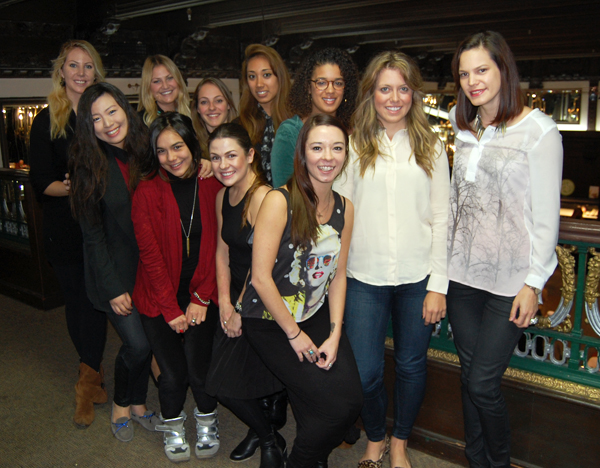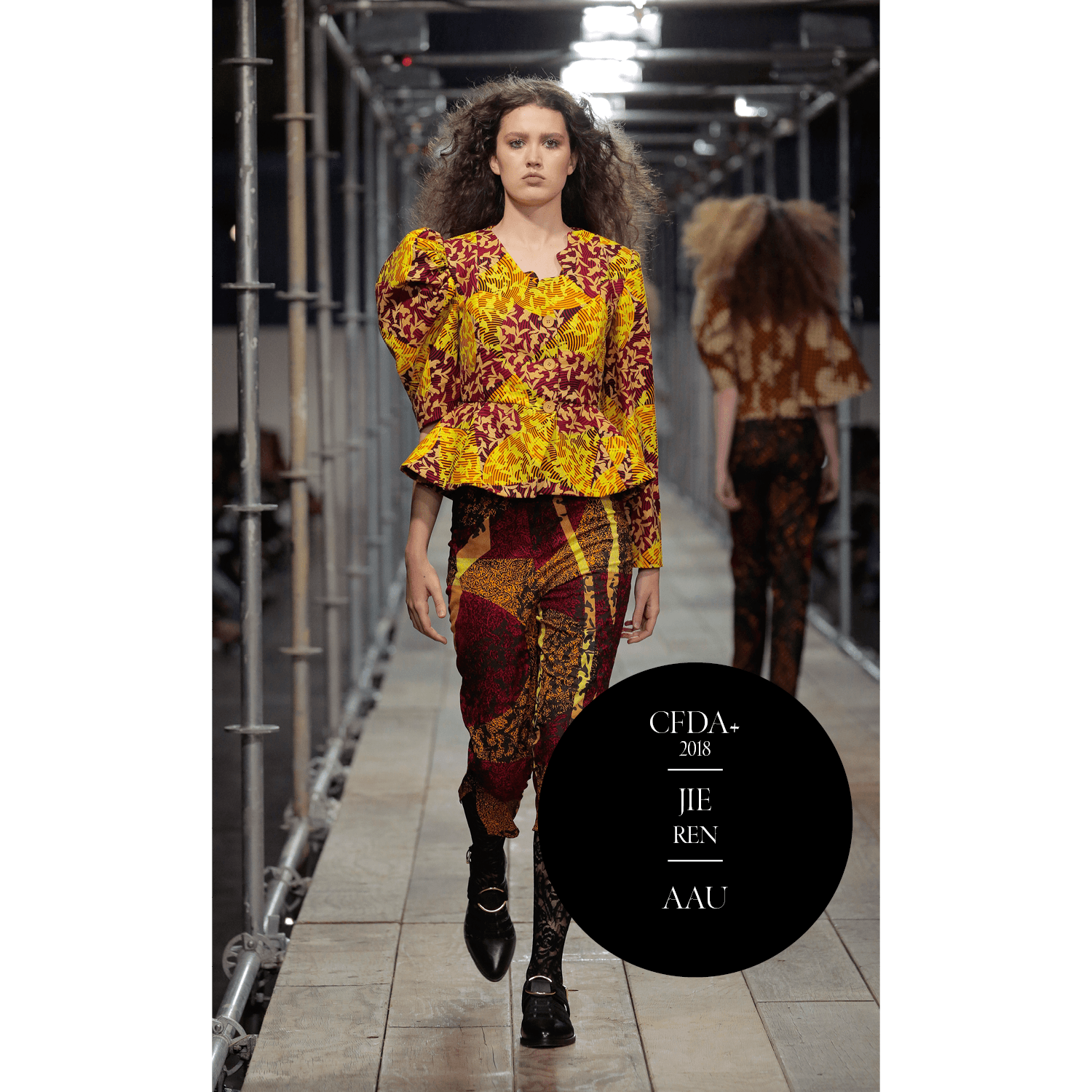
One thing that the School of Fashion really prides itself on is giving students an educational experience that emulates the real world as much as possible. Nowhere is this more evident than in Gabriel Gima’s FSH 363 – Fashion Show and Special Events Production class. The eleven students and their instructor worked tirelessly–and enlisted the help of peers, friends, and loved ones–to put on a fashion show that exceed their wildest expectations.
We spoke with the students about the entire process: the trials, tribulations, and immense success, and they offered some sage advice to students taking the class next semester. As cliché as it may sound, their amazing fashion show was proof that hard work really does pay off.
What were your initial expectations for the class?
Aubrey Kia: I knew initially when signing up for this class under the direction of Gabriel that I was going to get an exceptional educational experience, hands down. What I didn’t expect however was that what I actually signed up for, was a real life experience. Gabriel didn’t just create “this aspirational world” for us- as many instructors might in this industry, but instead, invited into his own.
Justine Janét: Having already taken a Gabriel Gima class, I expected to work hard, face extreme challenges and have a real life experience in the classroom setting. But my idea of how that would all relate to fashion show production, and the limits I’d be pushed to were limited by my lack of understanding as to how much work goes into production.
Follow the jump to read more!
How did you break up the roles of each student?
Katrina Rozeville: We broke them up into different departments. MPT, Music, Audio/Visual, Invitations, SWAG Bags, Interior Architecture, and more! But this was all the different parts that we collaborated with BEFORE the actually fashion show. We needed all this to make that day into fruition. There were so many different components because it’s not just the clothes or just finding the models. We needed to build a runway, (and to emphasize out of scratch too!) volunteers to help us with the show, photographers, bloggers, MUA, all of this. It couldn’t of been possible without these amazing people, with such talent!
Alyson Raymer: We broke up the roles by a volunteer system. At the beginning of the semester, as a role occurred, a student or group of students would volunteer to lead this task. As the semester grew on, we realized we cannot just be focused on the tasks we volunteered for, but to break out of that tunnel vision and be involved and in the know about ALL aspects of the project.
Alannah MacIntyre: We tried to delegate out roles to everyone as best that we could, but we quickly saw that there was a huge list of responsibilities and everyone was going to need to take on three or four different “roles.” We were also instructed from the beginning that no one person should get too involved with their role and feel like they owned it or was entitled to that position. We were also responsible for communication with everyone in the group about what was going on pertaining to our position.
It was clear about halfway throughout the semester that as a group, we were communicating really poorly and everyone was emotionally involved with her assigned titles in the class. Our instructor told us that we were going to have a huge “exam” at the midterm, and it turned out that the test was having everyone switch roles in the class.
We had a mini breakdown as a class, but after the dust settled we realized that we had been ignoring our instructor the entire semester. He said in class one, “Focus on an area that you don’t know much about, you will get so much more out of this class.” He also told us over and over again that the point of the class was to learn every aspect of fashion show production. It took something as big as having to give up our roles to make us realize that we all needed to get involved with the big picture.
What was the hardest part of the class? The most rewarding?
Justine Janét: Learning to treat the class like a job, yet showing up as if you were a blank slate was a challenge. As a senior sometimes I had the false conception that I already knew enough to face the challenges in front of me. But Gima always reminded us we are in school to learn. Not to mention as a group, we often battled each other for recognition of accomplishments and even for roles. Learning what it means to be a team player – being there to support the team, holding every individual accountable for their work so as to never sacrifice the integrity of the show.
Katarina Madrid: The hardest part was coming to terms with the fact that we actually know nothing about fashion show production and the minute we act like we know everything is the minute we are putting our team and the show in jeopardy.
The most rewarding part was hearing the audience applaud, and realizing we actually successfully produced a fashion show against all odds. But at the end of the day we had to trust each other to know we would get it done. At the start of the show I had the pleasure of watching our hard work in action and I got to watch our team celebrate our success–that was an amazing moment, most memorable in my entire school career this far.
How did you feel after the show?
Michaela d’Artois: After a week of reviewing every aspect of the production and stepping back I feel amazing about the experience. I feel like each of us can say that we exceeded even our expectations of our own capabilities and opened up new doors for ourselves. Stepping out of our comfort zones was difficult at first, but rewarding in the end.
Courtney Geier: For a couple reasons, I was incredibly grateful and ecstatic. I was cleared of all my fears and all the pressures of production and I suddenly appreciated my team much more than I had. I was motivated by and confident in all that we had learned–this was not an easy task and we had successfully created an event that went very well.
What advice would you give to students taking the class next semester?
Gigi Ouf: I would pass on advice that was given to me from Ian MacKintosh, the School of Fashion’s Director of Public Relations: “If you come to someone with a problem you need to have a solution, otherwise it just sounds like you are complaining.” There is no complaining in fashion show production.
Cici Liu: Start EARLY!
What were the biggest lessons you learned?
Katrina Madrid: I learned to acknowledge my mistakes, embrace them and use them as an example for what the rest of your team should avoid doing. Sometimes it’s difficult to hear someone tell you what you did wrong, but you are a student and that’s why you are in school–to make those mistakes so you won’t make them in the workplace. Ultimately I learned I am not perfect, I make mistakes and how I handle the aftermath of my mistake is what will really matter.
Gigi Ouf: I learned that when you empower people with your trust, they will in turn, execute amazing results.


